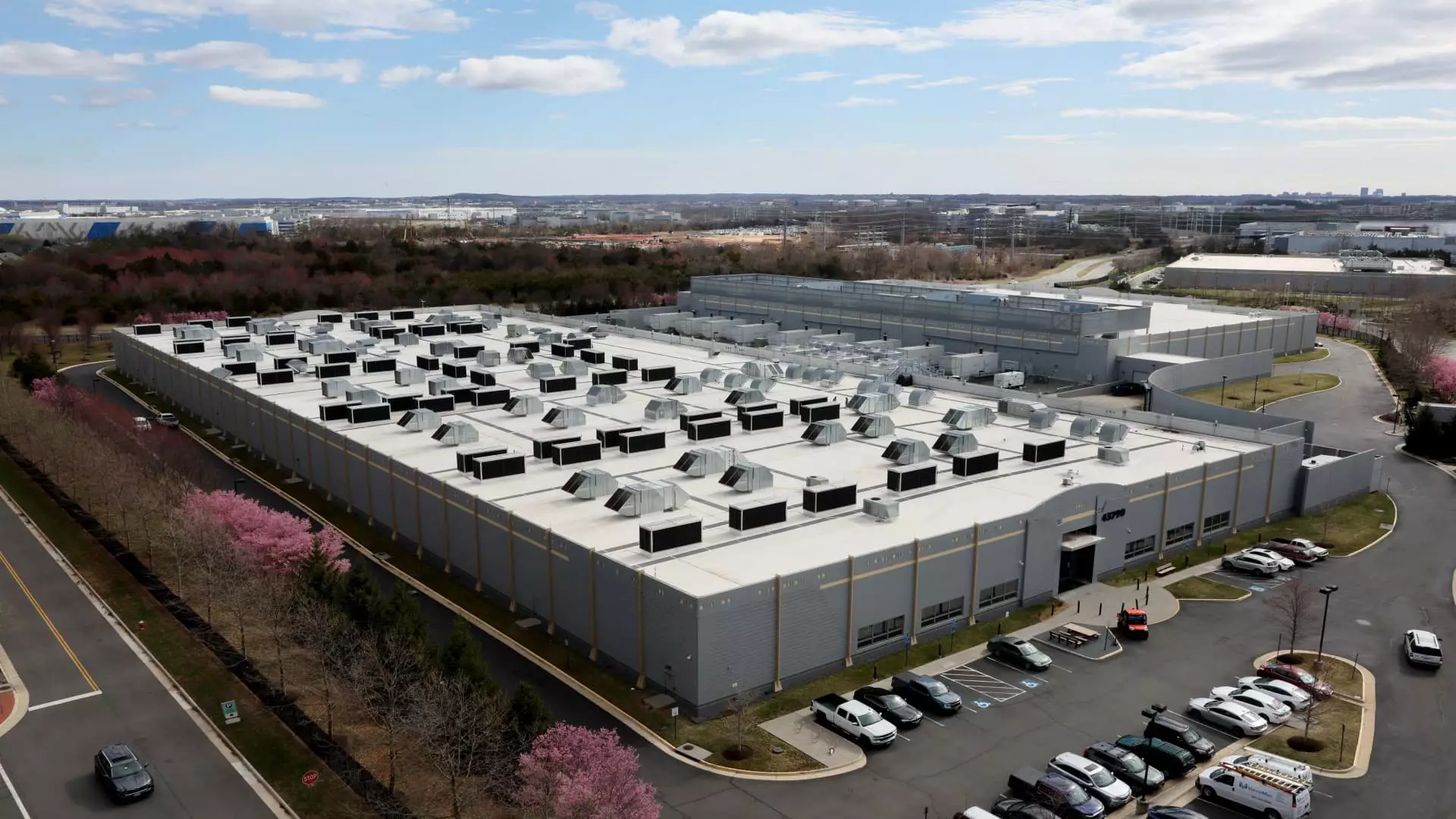In a world increasingly governed by technology, the announcement of a $25 billion investment partnership between the Abu Dhabi sovereign wealth fund ADQ and American private equity firm Energy Capital Partners (ECP) signifies a monumental shift in global power dynamics. This deal, aimed at addressing the soaring electricity demands of data centers and other energy-intensive industries, speaks volumes not only about energy consumption but also about where the future of our economy is headed. As data centers become the lifeblood of the tech revolution, this partnership underscores a critical juncture needing scrutiny.
Feeding the Data Beast
The agreement sets a target of deploying capital for over 25 gigawatts’ worth of projects, such as greenfield developments and infrastructure expansions, to support a data-hungry economy. With U.S. electricity demand poised to rise sharply in the coming years, fueled by surging needs from data centers, factories, and electric vehicles, it’s clear that we’re not just addressing current power needs; we’re anticipating an expansive future that is intrinsically tied to technology. But therein lies the irony: while these tech giants—like Microsoft, Amazon, and Google—shield our lives from numerous inconveniences, their gigantic energy footprints raise profound questions about sustainability and corporate responsibility.
AI: The Energy Drain
The partnership emerges against the backdrop of an urgent crisis: the energy required to operate artificial intelligence infrastructures. The U.S. Department of Energy has predictably forecasted explosive growth in data center electricity usage—estimates now suggest it could triple by 2028. This reality illuminates an uncomfortable truth: as we embrace the digitization of everything from our homes to our workplaces, we must also confront the toll it takes on our power grids. Anything less than proactive measures will lead to catastrophic outcomes in our environmental and socio-economic systems.
Investments in a Volatile Context
While the $25 billion investment should ostensibly contribute to the ‘green’ transition, we must ask ourselves whether this is an evolution or an extension of dependency on outdated infrastructure paradigms. ADQ’s ambitions in diversifying away from hydrocarbons are commendable but raise the question: Are they truly committed to sustainability, or is this merely a response to the ever-increasing pressures of climate change? Further complicating the reality is the fact that while power generation is critical, the sources of that power remain a hotbed for debate. Is the focus solely on capital investment enough, or must it also be paired with a robust conversation about renewable sources?
U.S.-UAE Relations: A Double-Edged Sword
The strategic meetings preceding this investment—with figures like President Donald Trump and titans like Elon Musk—have broader implications for U.S.-UAE relations. As the UAE seeks to become a key player in the AI paradigm, the partnership may accelerate its technological acquisition at the expense of traditional partnerships rooted in oil. This can either pave the way for a diversifying economy or foster a new kind of dependency that commodifies American technology for the whims of a small but wealthy nation.
The historical context of UAE’s investments paints a portrait of an aggressive pursuit of power—both in the economic and geopolitical sense. While there is a genuine drive towards innovation, it is tempered by the shadows of strategic interests. The UAE’s rush into AI and data centers speaks not only to economic diversification but also to a significant maturation of its global standing.
Reimagining Energy Solutions
This investment should serve as a clarion call for a reevaluation of how we conceptualize energy production and consumption. As artificial intelligence and other digital technologies take precedence in our lives, there must be a systematic and ethical approach to how we generate and harness power. The health of our environment and economy depends greatly on decisions made today. If we equate innovation solely with financial gain, at what cost are we advancing? Will we find ourselves at the mercy of energy demands driven by compounding technologies without the necessary safeguards for sustainability?
While the $25 billion partnership looks to bolster the U.S. power grid for its evolving data landscape, it raises pressing questions about ethics, sustainability, and the broader implications of a tech-driven society.

